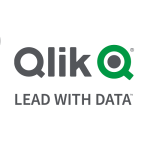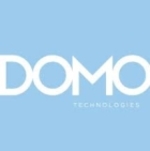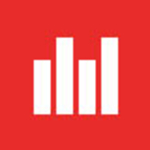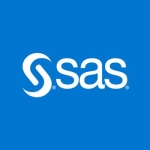
Group Finance Head Of Investment Bank Product Control at a financial services firm with 10,001+ employees
Gain clarity in financial presentations and face challenges with data preparation
Pros and Cons
- "Tableau is extremely good at dashboard creation, providing clear and concise visual presentations."
- "I find data prepping in Tableau challenging to understand, perhaps because I am new to it. It sometimes requires extensive investigation to determine why the data does not appear correctly."
What is our primary use case?
We mainly use Tableau for financial presentations.
What is most valuable?
Tableau is extremely good at dashboard creation, providing clear and concise visual presentations. The most beneficial feature is its ability to present data cleanly and effectively. However, setting it up and using it with large datasets can be challenging. Tableau excels in visualization, making presentations efficient.
What needs improvement?
I find data prepping in Tableau challenging to understand, perhaps because I am new to it. It sometimes requires extensive investigation to determine why the data does not appear correctly. Currently, I rely on community support to answer my queries, and it is still early for me to provide further comments on improvement.
For how long have I used the solution?
I have been using Tableau for less than a year.
Buyer's Guide
Tableau
June 2025
Learn what your peers think about Tableau. Get advice and tips from experienced pros sharing their opinions. Updated: June 2025.
859,687 professionals have used our research since 2012.
What was my experience with deployment of the solution?
There were challenges in getting accustomed to the functionality of Tableau, especially since I am used to Microsoft products. Certain criteria needed a lot of experimentation, particularly in data prepping. Sometimes the data doesn't appear as expected, leading to extensive investigative work.
What do I think about the stability of the solution?
I have not faced any issues with the stability of Tableau.
What do I think about the scalability of the solution?
I am still working towards understanding the scalability of Tableau. Currently, I have not encountered any limitations, but I am still exploring and replacing current tools. It is too early to comment on scalability issues.
Which solution did I use previously and why did I switch?
We previously used Microsoft Power BI. Power BI seems more powerful for data massaging and processing compared to Tableau. However, Tableau is superior in terms of visualization.
How was the initial setup?
The initial setup was a bit challenging, particularly because I was used to Microsoft products. It took some time to get certain criteria right, but it has become easier over time.
What about the implementation team?
The setup was conducted through my IT team, who provided me with the license.
What was our ROI?
We have not derived any significant benefits yet as we are still in the exploration stage, except for one time-saving achievement.
What other advice do I have?
If you have many presentations, I recommend Tableau. However, if your focus is on heavy data processing or data prepping, Tableau may not be the best choice. I would rate Tableau a 7 out of 10.
Which deployment model are you using for this solution?
On-premises
Disclosure: My company does not have a business relationship with this vendor other than being a customer.
Last updated: Apr 14, 2025
Flag as inappropriatePractice Head BI at Nous Infosystems
Building hyper extracts and creating visuals have been streamlined
Pros and Cons
- "The most valuable features of Tableau include building hyper extracts and creating visuals."
- "Tableau's data blending feature could use some improvement. Previously, I used other tools, such as Alteryx, for data blending because Tableau had limitations."
What is our primary use case?
I use Tableau for analytics development for different clients. It doesn't serve a specific use case for me as each customer has their own analytics development. I develop and provide analytics for various clients.
What is most valuable?
The most valuable features of Tableau include building hyper extracts and creating visuals. These functionalities are very useful, especially the ability to create visuals without much pre-work, which is a great advantage. Building hyper extracts and visualization capabilities make Tableau a robust tool for data analysis.
What needs improvement?
Tableau's data blending feature could use some improvement. Previously, I used other tools, such as Alteryx, for data blending because Tableau had limitations. Although the hyper extract and data modeling capabilities have slightly improved this feature, there is still room for enhancement.
For how long have I used the solution?
I have been using Tableau for around six to seven years.
What do I think about the stability of the solution?
Tableau is pretty stable, and I have not found any problems in terms of performance.
What do I think about the scalability of the solution?
The solution is fully scalable and performs well even with large datasets, provided there is proper supporting hardware.
How are customer service and support?
Technical support has been very responsive. Even if there are any issues with Tableau Server, writing a ticket results in a prompt response.
How would you rate customer service and support?
Neutral
How was the initial setup?
Tableau installation is easy, both for server and desktop versions. One person is enough to manage the installation.
What's my experience with pricing, setup cost, and licensing?
Pricing for Tableau is slightly higher, which is why I generally suggest Power BI as a much cheaper alternative.
Which other solutions did I evaluate?
I have worked with QuickSight, Tableau, and Power BI.
What other advice do I have?
I rate my overall experience with Tableau an eight out of ten. In terms of suggestions, I feel that Tableau needs to improve its AI capabilities. In comparison, Power BI offers features like Copilot and AI-enabled visuals, which Tableau currently lacks. Enhancing AI features would be beneficial. I rate the overall solution an eight out of ten.
Which deployment model are you using for this solution?
On-premises
Disclosure: My company does not have a business relationship with this vendor other than being a customer.
Last updated: Apr 18, 2025
Flag as inappropriateBuyer's Guide
Tableau
June 2025
Learn what your peers think about Tableau. Get advice and tips from experienced pros sharing their opinions. Updated: June 2025.
859,687 professionals have used our research since 2012.
Director , Business Intelligence at a healthcare company with 5,001-10,000 employees
Really good performance and has a growing community
Pros and Cons
- "Tableau's performance is really good, and it is adding new features."
- "Tableau's integration with Einstein Analytics could be better."
What is our primary use case?
We use the solution for operational reporting, dashboards, metrics, and ad-hoc analysis.
What is most valuable?
The best thing about Tableau is that you don't need a database connection and can generate a dashboard from a spreadsheet. It's very open. It moved the responsibility to the end user rather than in a closed control loop. There are a lot of widgets. Tableau looks for the data and suggests cool widgets. The community is growing, and there is always someone who has tried something before.
If you go to Tableau Cloud, you will see tons of visualizations and things that have already been done. You don't need to struggle a lot. If you post a question, someone will always answer you. The product is also getting better. Tableau's performance is really good, and it is adding new features.
What needs improvement?
When Salesforce bought the solution, they claimed that Einstein would be part of Tableau, but that indication is not working. Tableau's integration with Einstein Analytics could be better. It's not even up to par with other products. The ad hoc, self-service, and data analysis features are not working.
For how long have I used the solution?
I have been using Tableau for 11 years.
What do I think about the stability of the solution?
We haven’t faced any issues with the solution’s stability.
What do I think about the scalability of the solution?
Tableau's scalability is much better than the other previous clunky tools like MicroStrategy and Cognos. Around 300 to 350 users use the solution in our organization.
How was the initial setup?
The solution's initial setup is straightforward, and its details are available on the internet. The solution's cloud service can be deployed within a day. However, the on-prem deployment depends on many other factors and might take a couple of days.
What was our ROI?
We have seen a return on investment with Tableau.
What's my experience with pricing, setup cost, and licensing?
Tableau is an expensive solution.
What other advice do I have?
The solution is deployed on the cloud in our organization. If Tableau is on-premises, you have to monitor the server, recycle it, and restart it. However, if it is in the cloud, the admin role is completely reduced. We don't have a Tableau admin. The solution solves my problem, it is working as expected, and I have no complaints from my end.
There will always be complexities. We have to create a good data model so Tableau can use it. It's up to the team to make it complex or easy. Very good.
Overall, I rate the solution a nine out of ten.
Disclosure: My company does not have a business relationship with this vendor other than being a customer.
Lead Business Analyst at Orange
Reduced time spent creating reports and dashboards, easy to work with and offers AI-powered features like automatic prediction
Pros and Cons
- "The dashboards are amazing, with different report types and stunning visuals. Most importantly, Tableau's AI with machine learning automatically predicts features and reports based on historical data. These are the three most valuable features for me."
- "Firstly, the high cost of Tableau licenses makes it inaccessible for many mid-scale clients. Secondly, the server requires at least 128GB of RAM, which can be impractical for some systems. We need a dedicated system to use Tableau."
What is our primary use case?
I use it for sales tracking, incident management, and monitoring proactive tickets from different tools and systems. These are my three major use cases.
How has it helped my organization?
The biggest benefit is significant time savings in creating reports and dashboards. We now spend less time creating dashboards and reports. It's also very user-friendly and easy to work with.
What is most valuable?
The dashboards are amazing, with different report types and stunning visuals. Most importantly, Tableau's AI with machine learning automatically predicts features and reports based on historical data. These are the three most valuable features for me.
What needs improvement?
Firstly, the high cost of Tableau licenses makes it inaccessible for many mid-scale clients. Secondly, the server requires at least 128GB of RAM, which can be impractical for some systems. We need a dedicated system to use Tableau.
These are the two major challenges I see, especially for smaller organizations. Perhaps introducing lighter options or scaling solutions could be helpful.
Tableau offers some of the best features in the market. Enhancements are always ongoing, and it's already one of the strongest BI tools available.
For how long have I used the solution?
I've been working with Tableau for over five years.
What do I think about the stability of the solution?
Everything seems fine. They provide good materials and articles for updates, so it's not cumbersome. It's quite good, actually.
What do I think about the scalability of the solution?
It definitely scales well. It's one of the best in the market for that. We have over 300 users in my organization using it.
Which solution did I use previously and why did I switch?
I use various BI solutions. Primarily, I work with Power BI. We use two services: the server to upload reports and the Power BI Service.
We also use Tableau for one client for reporting, dashboards, and reservations. Additionally, I use SAP Business Objects for reporting purposes.
One of Tableau's big objectives is reporting. It is superior compared to other tools.
For on-premises Power BI, the biggest challenge is it's not fully integrated. We need separate applications and deployments on different machines. That's cumbersome.
With the Tableau server, everyone can share reports on one server, which is much more efficient. Reporting with Tableau is amazing compared to Power BI Desktop.
As for cons, the application size is quite high, and 128 GB of RAM is needed for the Tableau Server so if we need a lighter version of Tableau.
How was the initial setup?
The initial setup was not cumbersome, it was straightforward for me. It is like a default application in my system, I was not part of the infra team.
What about the implementation team?
As a user, I haven't encountered much maintenance myself. Infrastructure management manages it.
What was our ROI?
The value for money is definitely there. Tableau is a bit higher side as compared to Power BI services because Microsoft is offering really, very amazing prices. At the organization level, Microsoft provides PowerBI service as a package, and they are offering more than 30% to 60% of their end customer.
But, Tableau is on the same side, cost-wise, Tableau is a bit high.
What other advice do I have?
I would like to recommend Tableau because of the dashboarding, reporting and the features they are providing to end customers. So it is very commendable.
Overall, I would rate the solution an eight out of ten.
Which deployment model are you using for this solution?
On-premises
Disclosure: My company does not have a business relationship with this vendor other than being a customer.
Assistant Vice President - Business Managment Specialist at Deutsche Bank
Useful for data summarizing and dashboarding
Pros and Cons
- "Tableau's most valuable features are its ability to summarize data, provide dynamic controls for navigating different charts, and showcase historical data trends. I appreciate the option to colour-code different charts for improved customer experience."
- "Tableau could be improved by introducing a data manipulation layer within the tool itself. Currently, data manipulations require using additional tools like Alteryx. If Tableau included these capabilities, it would reduce the need for external dependencies. The tool gets slower when we feed huge amounts of data."
What is our primary use case?
We use the tool's dashboard for reporting purposes.
What is most valuable?
Tableau's most valuable features are its ability to summarize data, provide dynamic controls for navigating different charts, and showcase historical data trends. I appreciate the option to colour-code different charts for improved customer experience.
Tableau has influenced our decision-making process. With its ability to create conditional views and filter data easily, we can quickly analyze information and make informed decisions. It saves us time by providing a concise business performance summary, allowing us to focus rather than sorting through extensive Excel files.
What needs improvement?
Tableau could be improved by introducing a data manipulation layer within the tool itself. Currently, data manipulations require using additional tools like Alteryx. If Tableau included these capabilities, it would reduce the need for external dependencies. The tool gets slower when we feed huge amounts of data.
For how long have I used the solution?
I have been working with the product for four months.
What do I think about the stability of the solution?
I rate the solution's stability a nine out of ten since it gets slower whenever huge data is added.
What do I think about the scalability of the solution?
The tool's scalability is easy. I rate it a ten out of ten. My company has thousands of users for Tableau.
How are customer service and support?
We've got a dedicated support. It's easy to reach out to them, and they respond promptly.
How would you rate customer service and support?
Positive
How was the initial setup?
I rate the tool's deployment a six out of ten. It depends on the individual's technical background. Someone with a technical background could learn it in about a week or ten days. However, for someone from a non-technical background, it might take them longer, maybe a month, to grasp the more complex aspects of the tool.
What was our ROI?
Tableau has provided a return on investment for our company. It has helped us manage critical information such as outstanding payments and trade details. With Tableau, we have gained visibility into outstanding rates and payment dues, enabling us to follow up on penalties or payments from clients.
What's my experience with pricing, setup cost, and licensing?
The solution's licensing is based on user-basis. It depends on the business ROI it offers. It's not on the higher side or too cheap; it falls in the medium-cost range. The price is determined by user usage, so the cost will also increase as the number of users increases.
What other advice do I have?
For data analysis, we primarily use Tableau for basic tasks like creating pie charts or calculating averages. However, it lacks extensive or complex data analysis capabilities.
Tableau's data planning capabilities are somewhat limited. To compensate, we rely on other tools like Alteryx for data manipulation. Once we've prepared the data, we create hyperfiles and use Tableau for dashboarding.
I would recommend Tableau for advanced visualization tools. Still, I must mention that other powerful options are available in the market, such as Power BI. Power BI, which offers extensive data manipulation and dashboarding capabilities, while Tableau is old. Additionally, Power BI has newer versions, enhanced capabilities, and better integrations.
Right now, there are no talks on replacing it. So, my company will continue to rely on Tableau because it has many users. If we have to move to another tool, there must be a migration plan and many logistical changes, which could be a challenge.
I rate the overall product an eight out of ten. I advise those considering using Tableau to analyze their needs beforehand. Tableau can be a valuable data analysis and visualization tool, but it's important to understand what you want to achieve with it.
Disclosure: My company does not have a business relationship with this vendor other than being a customer.
Business Analyst at E-Technical Services (EDGE Group)
Good visualization features and easy dashboard creation and administration
Pros and Cons
- "We frequently utilize visualizations using maps and different objects, all with rich coloring options. And tooltips are absolutely essential for us. Tooltips, like the pop-up descriptions when you hover over some object or graph. Those tooltips in Tableau are great features."
- "More integration with Python or something related to machine learning would be a good improvement."
What is our primary use case?
I handle the development and administration of dashboards. I primarily use it for HR and finance. Assurant Financials specifically.
How has it helped my organization?
I find it to be the best BI tool for visualization.
What is most valuable?
We use most of the features from the analytics menu, like getting trends and forecasts.
We also love creating stories by combining sheets together, which is a really nice feature.
We frequently utilize visualizations using maps and different objects, all with rich coloring options. And tooltips are absolutely essential for us.
Tooltips, like the pop-up descriptions when you hover over some object or graph.
Those tooltips in Tableau are great features. Tableau even lets you call another dashboard from within the tooltip itself, which is truly amazing.
I've been following Tableau, and they're definitely making great progress. For instance, they added some generative AI features which I haven't used yet.
What needs improvement?
More integration with Python or something related to machine learning would be a good improvement.
For how long have I used the solution?
I have been using it for eight months now.
What do I think about the stability of the solution?
It's been very stable for us. I would rate the stability an eight out of ten.
What do I think about the scalability of the solution?
Based on my understanding, it's a highly scalable solution. However, I haven't personally tested it with Tableau, which is used for integration. But for the features I've used, I'd rate the scalability an eight out of ten.
There are only around 30 key users. But they're very satisfied with it, even though we're still in the initial stages and changing our data culture.
So, we plan to expand the usage further.
How are customer service and support?
The customer service and support are very responsive and supportive.
How would you rate customer service and support?
Positive
Which solution did I use previously and why did I switch?
I briefly explored Oracle Analytics, specifically a development tool called Oracle APEX. It includes some visualization features, but they're not as advanced as Tableau's.
In terms of visualization, Tableau is the best.
How was the initial setup?
The initial setup was very easy, especially on the cloud. So, I would rate my experience with the initial setup a nine out of ten, with ten being very easy.
What about the implementation team?
The deployment is very quick. Installation takes just a few minutes, definitely less than an hour.
We're still in the early stages of our project, so we're using the cloud. But I've also used Tableau Desktop, which is the client software installed on a PC. That was smooth as well.
What was our ROI?
It's too early to calculate ROI definitively, but we're seeing progress.
What's my experience with pricing, setup cost, and licensing?
Pricing might be slightly more expensive than some competitors, but for our organization, the cost hasn't been an issue.
What other advice do I have?
I highly recommend exploring Tableau's cloud-based demos and templates. You can learn a lot without purchasing the software. Also, tap into the Tableau community to gain knowledge and expertise. By doing this, your initial setup and learning curve will be much faster.
Overall, I would rate the solution a ten out of ten. I really like it.
Disclosure: My company does not have a business relationship with this vendor other than being a customer.
CEO at a tech services company with 1-10 employees
Connecting data sources with simplicity, yet finding features remains a challenge
Pros and Cons
- "The ability to present data is very effective, providing great impact and good online information."
- "Tableau could be more intuitive. It has all the features, but it is difficult to find them."
What is our primary use case?
I mainly use Tableau for sales and inventory purposes. Additionally, I have dashboards that show performance, and I utilize it for making reports on the database in one of the companies I work with.
What is most valuable?
The ease of connecting Tableau to data sources and manipulating the data is quite good and straightforward. Additionally, the ability to present data is very effective, providing great impact and good online information.
What needs improvement?
Tableau could be more intuitive. It has all the features, but it is difficult to find them. When I want to use or present something in a certain way, it's hard to locate the necessary features. However, with some help, I can eventually find them.
For how long have I used the solution?
I have been using Tableau for about five or six years.
What do I think about the stability of the solution?
Tableau is pretty stable.
What do I think about the scalability of the solution?
I wouldn't say Tableau is one hundred percent scalable, but it is quite scalable.
How are customer service and support?
I have not used Salesforce customer support.
How would you rate customer service and support?
Which solution did I use previously and why did I switch?
I have used Qlik Sense as another client works with it, so I have had reporting using their tools as well. However, I don't know enough of Qlik Sense to make a comparison.
How was the initial setup?
The installation of Tableau is pretty straightforward.
What about the implementation team?
I usually do the installation myself and do not require others.
What was our ROI?
Tableau is able to save up to ten to twenty percent of expenses.
What's my experience with pricing, setup cost, and licensing?
Tableau is on the high end and could have been more affordable. I would rate the price as around five out of ten.
Which other solutions did I evaluate?
I have used Qlik Sense but cannot comment on the differences with Tableau.
What other advice do I have?
I rate my overall experience with Tableau as a seven out of ten.
Disclosure: My company has a business relationship with this vendor other than being a customer. Partner
Last updated: Apr 17, 2025
Flag as inappropriateEasy integration with interactive storytelling capabilities but needs to improve data preparation features
Pros and Cons
- "Tableau has greatly enhanced our organization's data-driven decision-making processes by enabling us to create visually compelling reports and dashboards."
- "Navigating through activities like cleansing, reshaping, and wrangling extensive or complicated datasets could prove challenging within the Tableau environment."
What is our primary use case?
My primary use case of Tableau was in conjunction with Salesforce to enhance my data visualization and analysis capabilities.
Tableau empowers users to delve into their data deeply, effortlessly unlocking valuable insights and critical information. It's got a user-friendly interface and extensive visualization capabilities that allow me to create compelling reports and dashboards that help me make better decisions.
How has it helped my organization?
Tableau has greatly enhanced our organization's data-driven decision-making processes by enabling us to create visually compelling reports and dashboards.
This capability has led to better communication between teams. Despite some limitations associated with custom data connectors, Tableau has proven to be an invaluable tool for aggregating data from multiple sources, offering us a complete view of our operations.
This comprehensive perspective has allowed us to identify trends, make informed decisions, and optimize our strategies, ultimately leading to increased efficiency and competitiveness in our industry.
What is most valuable?
The most valuable features of Tableau for our organization have been the interactive storytelling capabilities and easy integration with Salesforce. We can create visual descriptions of data, making complex information accessible and interesting to all sides. This feature enables us to effectively communicate data-driven insights.
In addition, our integration with Salesforce provides access to critical sales data in real-time, which facilitates quick decision-making and improves customer relationship management. Together, these features enable us to get the most out of our information assets, which helps us to develop informed actions and strategies.
What needs improvement?
Tableau is excellent at visualizing data, however, I think improving the data preparation features would be a great addition. Navigating through activities like cleansing, reshaping, and wrangling extensive or complicated datasets could prove challenging within the Tableau environment.
Also, the settings for working with complex datasets also need to be changed. In the next version, it would be good to add user-friendly resources for beginners, such as interactive tutorials and templates, to make Tableau even more accessible to a wider audience.
For how long have I used the solution?
I've used the solution for more than three months.
Which solution did I use previously and why did I switch?
I used a range of solutions to find the best one. I haven't switched; I'm using them at the same time.
Which other solutions did I evaluate?
I evaluated QlikView.
Which deployment model are you using for this solution?
Public Cloud
If public cloud, private cloud, or hybrid cloud, which cloud provider do you use?
Other
Disclosure: My company does not have a business relationship with this vendor other than being a customer.
Buyer's Guide
Download our free Tableau Report and get advice and tips from experienced pros
sharing their opinions.
Updated: June 2025
Popular Comparisons
Microsoft Power BI
Informatica PowerCenter
Teradata
IBM Cognos
Amazon QuickSight
SAP Analytics Cloud
Qlik Sense
Domo
SAP BusinessObjects Business Intelligence Platform
Oracle OBIEE
MicroStrategy
SAS Visual Analytics
Oracle Analytics Cloud
Looker
Apache Superset
Buyer's Guide
Download our free Tableau Report and get advice and tips from experienced pros
sharing their opinions.
Quick Links
Learn More: Questions:
- QlikView or Tableau - Which is better?
- What's your experience or opinion about Spotfire vs. Tableau vs. Qlik?
- I currently use Panorama Necto as a viewer on SQL Analysis services cube--what other solutions are out there?
- Business users moving from Tableau to MS Report builder
- Tableau vs. Business Objects - Which is a better solution for visualization and analysis?
- Tableau vs. Spotfire - What do I need to know regarding pricing and usability?
- I'm looking for real info about licensing, ease of setup and other costs involved. Can you help?
- Tableau 10: Best New/Improved Features
- A journalist is writing a story about which Data Visualization software product to choose. Can you help him?
- Tableau vs. QlikView - functionality and pricing schemes


















